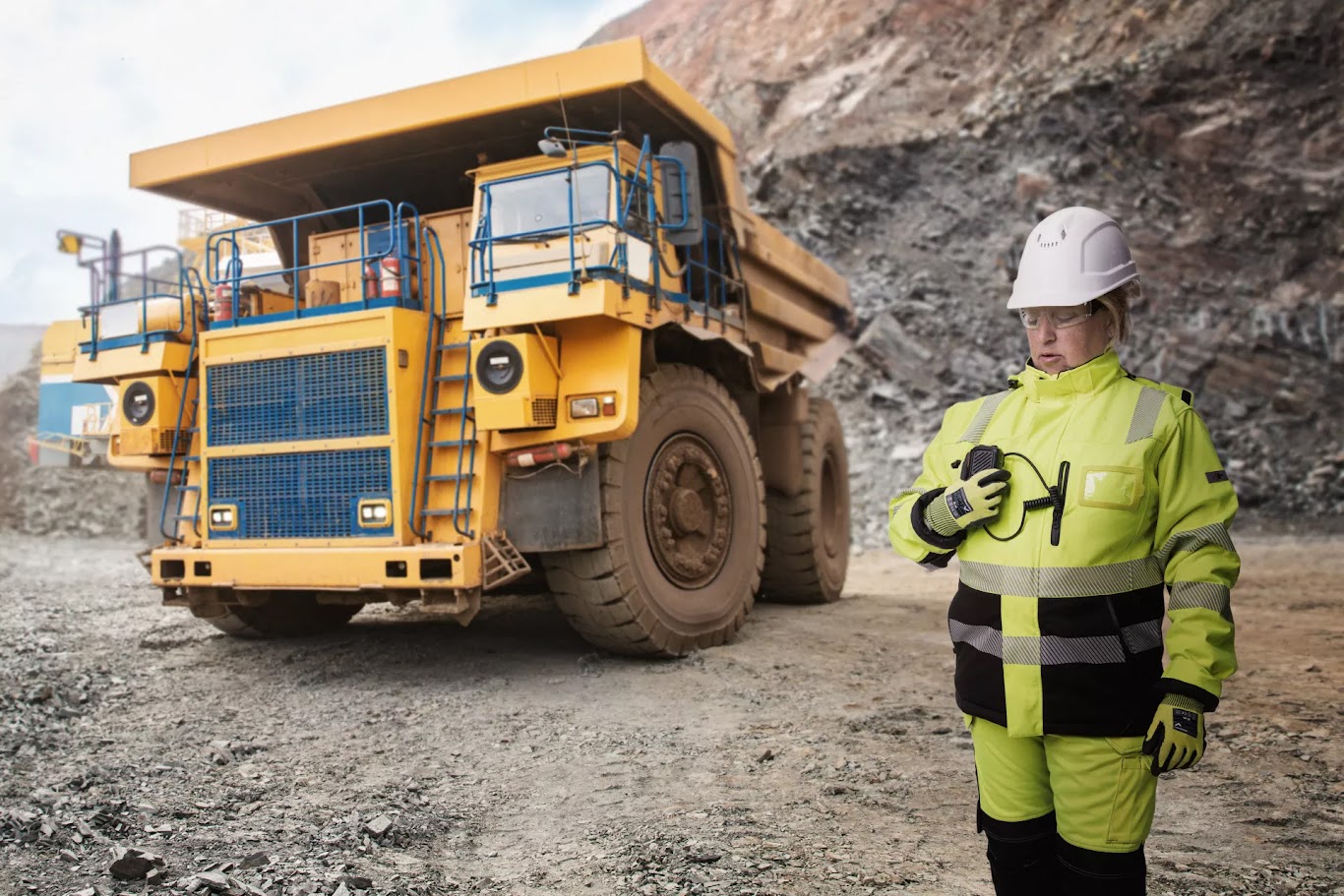Nokia has launched an array of industrial 5G devices to keep enterprise teams and public safety workers safe, connected and informed over private wireless networks in hazardous and industrial environments including mines, ports, chemical plants and offshore oil platforms.
The company has introduced new ruggedized 5G handhelds, a new industrial device consumption model and enhancements to worker and device related applications. By adding these new assets to Nokia’s end-to-end platform for industrial digitalization, along with its private wireless and edge applications, the company reinforces its industry leadership with a market leading portfolio and strengthens its commitment to help industrial enterprises navigate their digital transformation journeys, ensuring their operations are more safe, productive and efficient.
Nokia said the new industrial devices are suitable for all types of enterprises and include a ruggedized handheld supporting public safety teams communicating over Band 68. The U.S.-manufactured handheld device has a long lifecycle and is IP 68-rated for operation in remote or harsh environments.
Dual-SIM, including flexibility adding eSIM, ensures the most reliable connectivity and simplified management, while an exchangeable battery allows shift workers to share devices in the field. Teams can customize keys to define a dedicated push-to-talk button, while other large buttons and optional accessories, including remote speaker microphones and earpieces enabling push-to-talk, allow workers to communicate clearly and safely without removing safety equipment like helmets and gloves.
Nokia is also expanding the portfolio of ruggedized 5G handhelds with EX-rated phones – all with the same technical platform. The company has partnered with i.safe MOBILE GmbH, world market leader for explosion-proof mobile devices and solutions.
Two i.safe MOBILE 5G handhelds are now part of the Nokia end-to-end solution for private wireless infrastructures. They have been rigorously tested and certified* to meet the connectivity demands of sectors such as mining, oil and gas and chemical manufacturers. They can be safely used in hazardous areas (ATEX Zone 1) or further away (ATEX Zone 2) where a flammable atmosphere is not likely but could occur for a short time. These handhelds offered by Nokia, support all necessary radio frequency bands, have all required certifications, and can thus be used by companies worldwide.
Nokia will also offer its managed ruggedized 5G industrial devices deployed over Nokia Digital Automation Cloud (DAC) in a subscription-based ‘as-a-Service’ (aaS) model. Application bundles include Nokia Industrial device management, which allows administrators to apply group policies and scale management to their entire device fleet, Nokia Team Comms and Nokia Network Digital Twin. This model allows enterprises to move asset costs from capital to operating expenses and more easily connect workers and manage the fleet of industrial devices in their plants. Moving forward, Nokia will continue to add more types of devices to the managed aaS model.
The updated Nokia Team Comms (NTC) 23 application running on Nokia Mission Critical Industrial Edge (MXIE) now aligns to the 3GPP defined MCS (Mission Critical Services) standard. NTC will address the needs of mission-critical push-to-talk (MCPTT), providing communication capabilities usually only available in more complex and expensive solutions for workers in harsh environments. NTC allows users to stream video or establish voice calls with a group of users or a single user to gain the greatest context about any situation. The new version will allow administrators to configure changes to their device fleet via a newly built web portal. Deployed on MXIE residing on-premises, Nokia Team Comms ensures data remains within the teams that use it. It works without internet connectivity and scales from a small number of users to large groups.
Nokia is also extending the capabilities of Nokia Network Digital Twin (NDT) to all Android devices, allowing coverage and performance data for Wi-Fi, private and public cellular networks to be automatically collected in real time and processed on Nokia MXIE. Enterprises in dynamic environments, such as ports, factories or mines, can see how changes in their operations impact network performance and use this insight to inform future network planning and use case decisions.
Martin Haaf, CEO of i.safe MOBILE, commented: “Through this partnership, we are pleased to support Nokia with our decades of expertise in explosion-proof mobile devices with our latest 5G developments. The combination of our devices with Nokia’s solutions offers companies a great added value on their digitalization journey.”
Nokia 4.9G/LTE and 5G ruggedized user equipment and integrated applications allow enterprises to connect their workers and industrial machines over private wireless networks and benefit from the greatest performance and lowest latency.
* Devices have received the following certifications: ATEX (Europe), NEC500 (US), IECEx (global), UKEX (UK) and JNIOSH (Japan).
Source: Nokia

